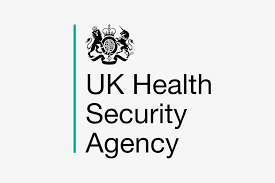
Festive travellers are being urged to take precautions as the holiday season approaches as the latest data from the UK Health Security Agency (UKHSA) shows a significant rise in travel-related infections like dengue and malaria.
Cases of malaria rose by 57% in the East Midlands between 2022 and 2023. There were 96 reported cases in 2023 compared with 41 reported cases in 2022 and 27 in 2021.
There were also 18 reported cases of dengue fever in the East Midlands between January and June 2024.
These infections, which can cause serious illness, were confirmed among individuals returning from abroad.
Dr Vanessa MacGregor, Consultant in Communicable Disease Control at UKHSA East Midlands, said: “As many people prepare to travel over the winter period, it is important to take precautions against serious mosquito-borne infections. Simple steps, such as using insect repellent, covering exposed skin, and sleeping under insecticide-treated bed nets, can help reduce the risk of malaria, dengue, and Zika virus infection. Taking malaria prevention tablets appropriately is highly effective in avoiding the disease.
“Before you travel, check the TravelHealthPro website for the latest health advice on your destination. Even if you’ve been to a country before, remember that you don’t have the same level of protection against infections as permanent residents and are still at risk.”
The annual malaria report for 2023 shows there were 2,106 cases of imported malaria reported in the UK. This is 26% higher than the cases reported in 2022 (1,555 cases) and is the highest total number of cases seen in the UK since 2001, where the total case number was last above 2,000.
The rise in cases is linked to the resurgence of malaria in many countries and an increase in overseas travel following the removal of pandemic restrictions.
Six malaria-related deaths were also reported in the UK in 2023, which is the same as the annual average of six deaths between 2014 and 2023. Malaria is a potentially fatal disease that is almost completely preventable when malaria prevention tablets are taken appropriately. Provisional figures indicate that 753 travel-acquired malaria cases were reported in the UK between January and June 2024.
In a separate report, looking at other mosquito born infections between January and June 2024, there were 473 dengue cases reported in returning travellers across England, Wales, and Northern Ireland, a significant increase from the 157 cases reported during the same period in 2023. This is the highest number of cases reported in the first six months of any year since dengue surveillance began in 2009 and reflects the substantial rise in cases reported globally in 2024. The Joint Committee on Vaccination and Immunisation (JCVI) has recently recommended a dengue vaccine for some travellers.
Between January and June 2024, eight Zika virus cases were reported in England, Wales, and Northern Ireland, an increase from one case during the same period last year. Most cases were linked to travel in South-East Asia. Although Zika virus cases are rare, the infection poses a significant risk to pregnant women, as it can be passed to the foetus. There is no drug or vaccine to prevent Zika virus infection.
The only way to prevent infection is by minimising mosquito bites or by avoiding visiting regions with a known or potential Zika virus risk.
Dr Dipti Patel, Director of the National Travel Health Network and Centre, said: “Travellers planning to travel abroad during the Christmas break should plan ahead to ensure they have a safe and healthy trip. You should read the relevant country pages on the TravelHealthPro website and consult a general practice (GP), pharmacy, or travel health clinic at least 4-6 weeks before the trip to ensure your vaccinations are up to date and to receive any necessary health advice.
“Upon returning to the UK, if feeling unwell, individuals should seek medical attention and inform their healthcare provider about their recent travel.”
The Travel Health Pro website, supported by the UK Health Security Agency, has information on health risks in countries across the world and is a one-stop-shop for information to help people plan their trip abroad.
Ideally travellers should consult their GP, practice nurse, pharmacist, or travel clinic at least 4 to 6 weeks before their trip for individual advice, travel vaccines and malaria prevention tablets, if relevant for their destination. Travellers who may be eligible for dengue vaccine should consult 3-4 months before travel.
In countries with insects that spread diseases like dengue, malaria or Zika virus infection and Oropouche virus disease, travellers can protect themselves by using insect repellent, covering exposed skin, and sleeping under an insecticide-treated bed net where air conditioning is not available.
It is also important for travellers to:
* ensure your routine childhood vaccines are up to date
* have any recommended travel-related vaccines
* stock up on necessary medications including malaria prevention tablets
* get valid travel insurance to cover your entire trip and planned activities
There has been a rise in Oropouche infections globally recently, although there have been no confirmed cases diagnosed in this country this year. Oropouche virus (OROV) is spread predominantly by midge bites rather than mosquito bites. Due to the increase in cases, and some recent concerns regarding OROV infection during pregnancy, pregnant travellers should take particular care. A recent study found OROV in the semen of an infected individual, suggesting sexual transmission may be possible. Travellers concerned about spreading OROV through sex should consider using condoms or avoiding sex during travel and for six weeks after returning.

 PM tells councils to prove action on pothole plague to unlock extra cash and reveals £4.8bn for major roads
PM tells councils to prove action on pothole plague to unlock extra cash and reveals £4.8bn for major roads
 Giving Lottery Result for Saturday 29th March 2025
Giving Lottery Result for Saturday 29th March 2025
 3,700-year-old stone circle discovered in Derbyshire forest
3,700-year-old stone circle discovered in Derbyshire forest
 County Council moves forward with its proposals to “Keep Derbyshire Together”
County Council moves forward with its proposals to “Keep Derbyshire Together”




